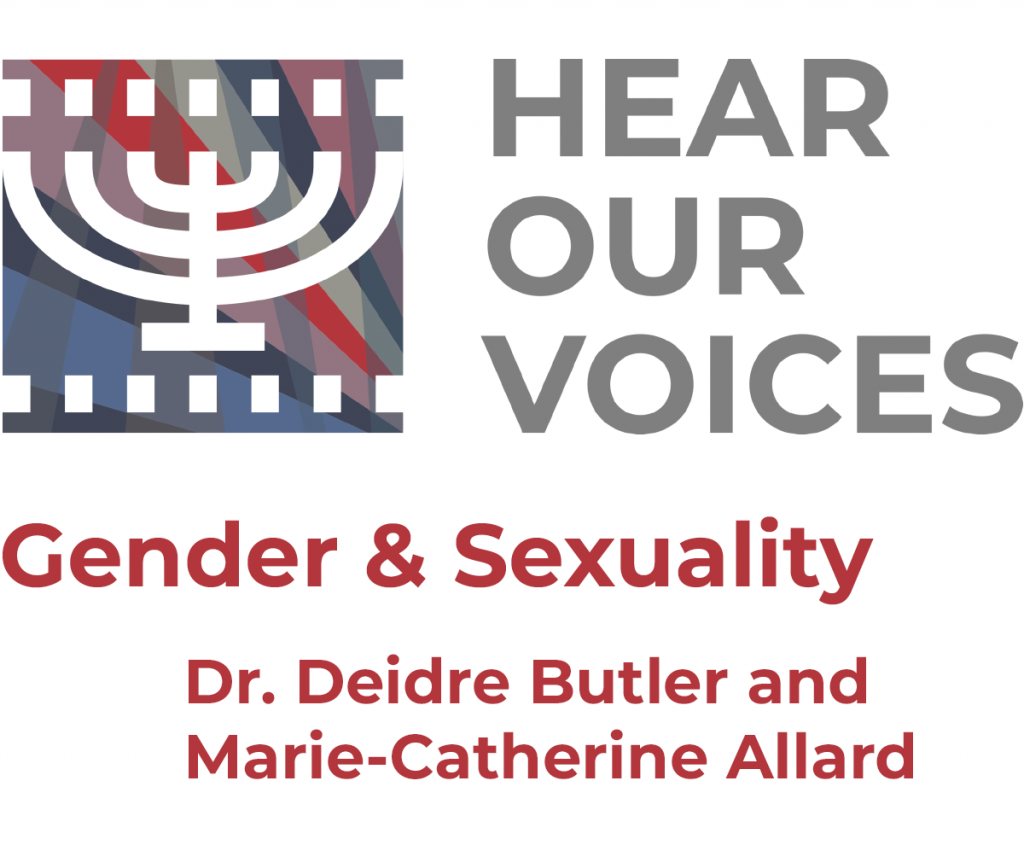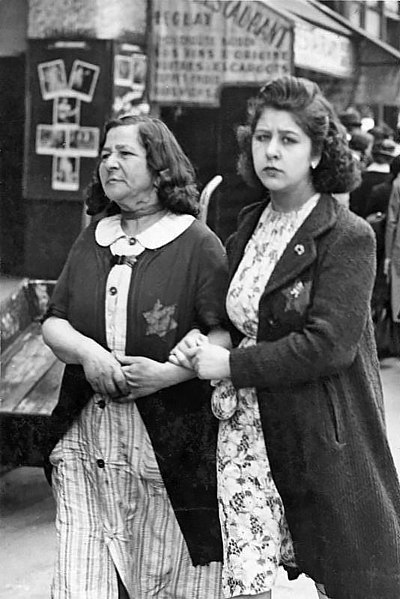Module 2: Gender and Sexuality

Deidre Butler
Dr Deidre Butler is Lead Researcher and Director of the Hear Our Voices Project. She is also Director of the Max and Tessie Zelikovitz Centre for Jewish Studies and an Associate Professor specializing in Jewish Studies in the Religion program at Carleton University. Butler is an award-winning teacher who teaches in the areas of modern Judaism, gender, sexuality and religion, and religious and philosophical responses to the Holocaust. Professor Butler is a Fellow of the Holocaust Education Foundation at Northwestern University and has published on the topic of women’s artistic responses to the Shoah as well as the need to integrate women’s historical experiences of the Holocaust in philosophical and religious responses to that trauma. She has interviewed and worked with Holocaust survivors since 2006. Butler has developed oral history films with survivors including the full-length documentary Living History and all of the HOV oral history interviews in this project. Her current research project, in collaboration with Professor Betina Appel Kuzmarov, is an interdisciplinary ethnographic project that investigates the phenomenon of Jewish religious divorce in Canada.
Marie-Catherine Allard
Marie-Catherine Allard is the project coordinator of the Hear Our Voices Project. She is also a PhD candidate in Cultural Mediations at Carleton University. Her dissertation, which is entitled “Reshaping Memory: Narrating the Kindertransport in Literature and Popular Culture,” focuses on the narratives of Karen Gershon, Ruth Barnett, and Josef Eisinger. In her work, she explores the ways in which the Kinder’s numerous retellings of their evacuation from one medium or literary genre to another foster the reconfiguration of their Kindertransport experience. Marie-Catherine has been awarded the Andras Memorial Award to support her research on the artistic representation of the Kindertransport, the rescue operation which allowed, before the outbreak of World War II, for the relocation of ten thousand children at risk of deportation from Austria, Germany, Czechoslovakia, and Danzig mainly to Great Britain.

“To use gender as a framework for analysis is simply to become more attentive to the possible consequences of one of the major axes of all social organization—together with age, class, race, and religion.”
Dalia Ofer and Lenore Weitzman. ‘‘Women in the Holocaust.’’ The Shalvi/Hyman Encyclopedia of Jewish Women. 31 December 1999. https://jwa.org/encyclopedia/article/women-in-holocaust.
Introduction
In this module, we focus on the ways that oral histories can help us explore the history of gender and sexuality during the Holocaust. Why study the Holocaust through the categories of gender and sexuality? As you progress through this material, consider how gender and sexuality can serve as a framework for analysis that complicates, enriches, and provokes new questions about the Holocaust. What do we see when we ask these questions? Who do we hear that might otherwise be silenced?
This module is divided into two parts: Gender and Sexuality. These are in turn organized into three sections each. Each section focuses on a selection of “big questions” about gender and sexuality that will assist you in engaging with the oral histories in this module.
Part One: Gender
- “Why Gender and the Holocaust?” will provide you with the categories and definitions necessary to go forward through the rest of the module.
- “Gendered Bodies” considers how, within the gender binary that was central to Nazi ideology, women and men were targeted, persecuted, and killed as gendered embodied persons.
- “Gender and Emigration: A Case Study” explores the gendered dimensions of Josef Eisinger’s experiences as a member of the Kindertransport.
Part Two: Sexuality
- “Sex & Sexuality: Nazi Ideology” interrogates how the Nazis and their supporters used sex, sexuality, and gender to persuade the public to support Nazi ideology and persecute Jews.
- “Sexual Violence” explores the historical problem of sexual violence and the Holocaust. Why has it taken so long to normalize and acknowledge accounts of sexual violence against Jewish victims?
- “Nazi Ideology and the Persecution of LGBTQ+ Persons” provides an explanatory context for the Nazi persecution of LGBTQ+ persons as well as the difficulty in tracing the history of Jewish LGBTQ+ victims.

